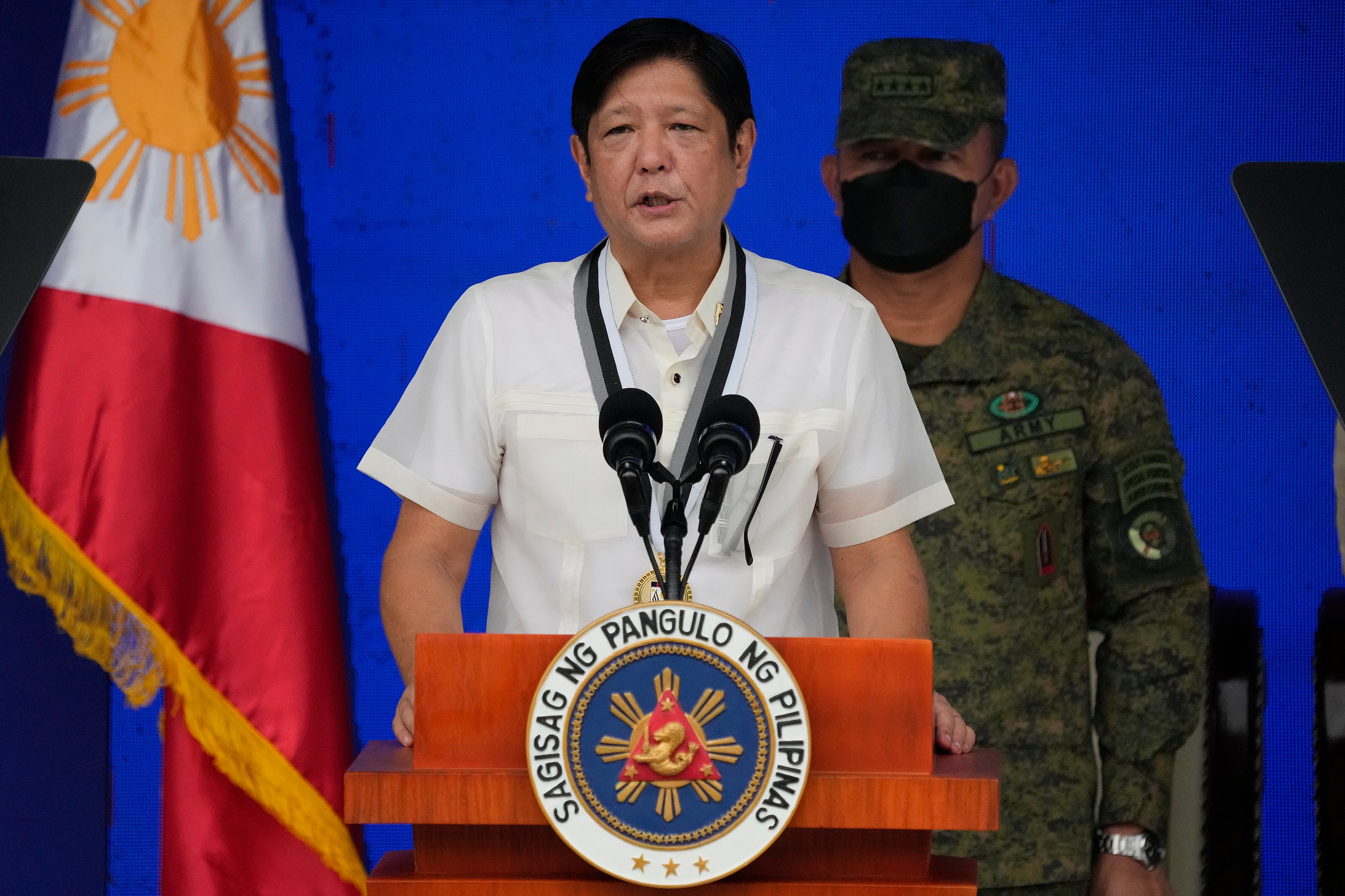Rebel land mine wounds 7 soldiers in central Philippines
A Philippine army general says a land mine set by communist guerrillas has wounded seven soldiers in the central Philippines, in one of the insurgents’ first known attacks since President Ferdinand Marcos Jr. took office last week

Your support helps us to tell the story
From reproductive rights to climate change to Big Tech, The Independent is on the ground when the story is developing. Whether it's investigating the financials of Elon Musk's pro-Trump PAC or producing our latest documentary, 'The A Word', which shines a light on the American women fighting for reproductive rights, we know how important it is to parse out the facts from the messaging.
At such a critical moment in US history, we need reporters on the ground. Your donation allows us to keep sending journalists to speak to both sides of the story.
The Independent is trusted by Americans across the entire political spectrum. And unlike many other quality news outlets, we choose not to lock Americans out of our reporting and analysis with paywalls. We believe quality journalism should be available to everyone, paid for by those who can afford it.
Your support makes all the difference.A land mine set by suspected communist guerrillas wounded seven soldiers in the central Philippines on Tuesday, in one of the insurgents’ first known attacks since President Ferdinand Marcos Jr. took office last week.
Army troops were checking reports from villagers of anti-personnel mines laid by New People’s Army rebels along a village trail in Mapanas town in Northern Samar province when an explosion wounded the seven soldiers, regional army commander Maj. Gen. Edgardo de Leon said.
Two of the wounded soldiers were in critical condition, he said, adding that no villagers were injured.
“Some of the soldiers were tossed away because the rebels have been using really powerful land mines,” de Leon said.
The government will file criminal complaints against rebel leaders for the attack and the use of internationally banned types of land mines, de Leon told reporters.
The soldiers were not able to open fire at the rebels, who fled after the attack and were being hunted by government forces, he said.
On Friday, a day after Marcos Jr. was sworn in after winning a landslide victory in a May 9 election, government troops assaulted eight communist rebels, killing one, in a brief gunbattle in central Negros Oriental province, the army said.
Marcos Jr. must deal with decades-long communist and Muslim insurgencies, along with longstanding territorial disputes with China and other claimants in the South China Sea.
During the campaign, he said he would pursue peace talks with communist insurgents and expressed support for a government task force established under his predecessor, Rodrigo Duterte, to fight the insurgency by bringing infrastructure, housing and livelihood projects to the poverty-stricken countryside.
The task force has drawn criticism for linking several left-wing activists and government critics to the communist insurgency, in what Duterte’s opponents said was baseless “red-tagging” aimed at muzzling legitimate dissent.
Despite battle setbacks, infighting and factionalism, the communist insurgency has continued to rage, mostly in rural areas, for more than half a century in one of Asia’s longest-running rebellions. It currently has an estimated 2,700 armed fighters.
The new president is the son of the late dictator Ferdinand Marcos, whose counterinsurgency program was known for killings, torture and disappearances of suspected rebels, left-wing activists and their supporters.
The elder Marcos was overthrown in an army-backed 1986 “People Power” pro-democracy uprising that drove him and his family into U.S. exile.
After Marcos died in Hawaii in 1989, his widow and children returned to the Philippines, where they achieved a stunning political comeback by whitewashing the family image on social media, critics say.